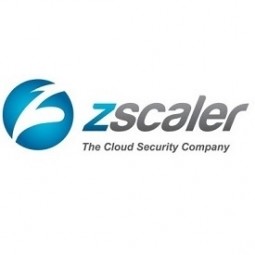Download PDF
Transforming Media Broadcasting with IoT: A Case Study
Technology Category
- Application Infrastructure & Middleware - API Integration & Management
- Networks & Connectivity - Global Navigation Satellite System (GNSS)
Applicable Industries
- Cement
- Telecommunications
Applicable Functions
- Maintenance
- Quality Assurance
Use Cases
- Infrastructure Inspection
- Time Sensitive Networking
Services
- Hardware Design & Engineering Services
- Testing & Certification
The Challenge
The company, a global leader in media and entertainment, was facing a significant challenge in migrating from traditional broadcast technologies to IP-based services. The shift was necessary to keep up with the evolving industry trends and to ensure efficient data movement within the company. However, their existing solution, a multi-vendor proxy access, was not meeting their needs. It was causing frequent outages and operational issues, and the IT department had no visibility into threats or performance issues. The company was also exposed to upper-level application threats due to the lack of deep inspection. The challenge was to find a secure, high-performance solution that could effectively move content without negatively impacting performance.
About The Customer
The customer is a leading global media and entertainment company with a diverse portfolio that includes news and entertainment television networks, a premier motion picture company, significant television production operations, a leading television stations group, world-renowned theme parks, and a suite of leading Internet-based businesses. Over the past few years, the company has been transitioning from traditional broadcast technologies to IP-based services to keep up with industry trends and improve efficiency.
The Solution
The company decided to replace the multi-vendor proxies with a single solution, Zscaler, while still leveraging their existing networking and security infrastructure. Zscaler was the only solution on the market that could provide a reliable, secure proxy service to the company’s employees while giving the IT department total visibility into threats and performance issues. The Zscaler service allowed the company to move broadcast content securely through standard IP networks, saving significantly on infrastructure and maintenance costs. It also provided a stable environment, freeing up the IT team to focus on more strategic initiatives. The deep level of inspection of network traffic eliminated upper-layer application threats, and the enhanced visibility and control provided through the Zscaler reporting dashboard allowed the IT department to show tangible, metrics-based results to business units.
Operational Impact
Quantitative Benefit
Related Case Studies.

Case Study
System 800xA at Indian Cement Plants
Chettinad Cement recognized that further efficiencies could be achieved in its cement manufacturing process. It looked to investing in comprehensive operational and control technologies to manage and derive productivity and energy efficiency gains from the assets on Line 2, their second plant in India.

Case Study
Vodafone Hosted On AWS
Vodafone found that traffic for the applications peak during the four-month period when the international cricket season is at its height in Australia. During the 2011/2012 cricket season, 700,000 consumers downloaded the Cricket Live Australia application. Vodafone needed to be able to meet customer demand, but didn’t want to invest in additional resources that would be underutilized during cricket’s off-season.

Case Study
SKT, Construction of Smart Office Environment
SK T-Tower is the headquarters of SK Telecom. Inside the building, different types of mobile devices, such as laptops, smartphones and tablets, are in use, and with the increase in WLAN traffic and the use of quality multimedia data, the volume of wireless data sees an explosive growth. Users want limitless Internet access in various places in addition to designated areas.








